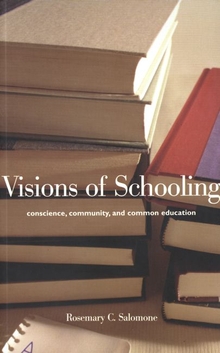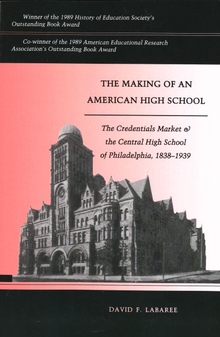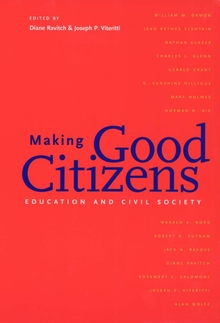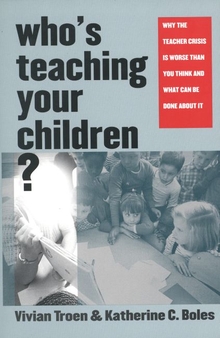Preschool Education in America
WARNING
You are viewing an older version of the Yalebooks website. Please visit out new website with more updated information and a better user experience: https://www.yalebooks.com
The Culture of Young Children from the Colonial Era to the Present
Barbara Beatty
Drawing on archival records, alumnae files, interviews, and many other sources, Barbara Beatty provides a portrait of preschool education that includes the experiences of children, parents, and teachers. She describes dame schools of the colonial period, the infant schools that were originally developed to instruct and provide day care for children of the poor, the private and public kindergartens of the mid-nineteenth century, nursery schools, and the various government programs for young children, including Head Start. Beatty concludes that for preschools to be universalized, there must be widespread acceptance of both young children's right to education and the intrinsic worth of preschools, as well as an understanding of the importance of early childhood education in our culture.
"The definitive history of American preschool education. What is most important about the book is its incisive and insightful approach to preschool education as public policy. The issues are deceptively complex and subtle, and the book addresses them in simple and clear terms."—Sheldon H. White, Harvard University
"The first feminist account of early childhood education, this study illuminates an important intersection between women's history and the history of education; family and social historians should also take note."—Sonya Michel, University of Illinois at Urbana-Champaign
"Those new to the subject will have no difficulty understanding the issues. Those familiar with the material will find the book absorbing; it provides both fresh insights and a sobering perspective, since many past arguments about early childhood are still being used. Beatty writes smoothly and with authority. Bibliographic references embedded in the notes are extensive and informative. A section of photographs enhances the text. Essential for every education library and for general readers."—Choice
"Barbara Beatty has now produced a fine analysis of preschool education from the colonial period to the present. . . . A remarkably balanced and thoughtful work. . . . Beatty has written the best introduction and overview of this subject. . . . All of us will rely on her work as a point of departure and inspiration."—Maris A. Vinovskis, Journal of American History
"Explains and illuminates the history of the development of preschool education programs. . . . Beatty offers much to be discovered in the pages of this comprehensive collection of the development of preschool education in America."—Christine A. Woyshner, Harvard Educational Review
"An ambitious, lucid, elegant, much overdue exploration of the origin and development of . . . education for three, four, and five year olds."--Barbara Finkelsten, Paedagogica Historica
"An informative and well researched account. . . . This interesting book . . . brings together in one story various parts of the history of early education. . . . This book will undoubtedly, and deservedly, be used as a resource."—Harriet K. Cuffaro, Curriculum and Instruction
"Much of what Beatty presents is well known but is scattered in many different places, so this book is a useful compendium. Its major contribution is the discussion of the political, intellectual, and social conflicts involved in establishing kindergartens within the public schools. . . . A useful reference work for historians of both childhood and education."—Joseph M. Hawes, American Historical Review
"In Preschool Education in America Barbara Beatty combines three strands of modern scholarship in the history of education: on women; on the ideology and pedagogy of preschool education; and on public policy toward young children. Through this integration she illuminates and judiciously interprets key issues in new ways."—David Tyack, Stanford University
Publication Date: September 23, 1997
24 b/w illus.








